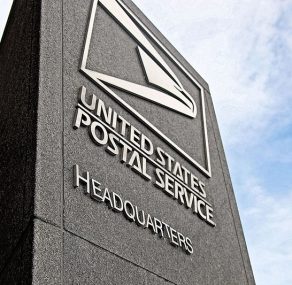GAO Report Urges Congress to Act to Save Postal Service Retiree Fund

If Congress fails to take action to address the funding shortfall for the U.S. Postal Service, the agency will not have enough money in 12 years to pay for retirees’ healthcare.
This has been an ongoing issue for the last ten years, as the USPS has been ordered to pre-fund the benefit for prospective retirees. Since the USPS has defaulted on many of the payments, the Government Accountability Office has deemed the Postal Service Retiree Health Benefits fund as having a weak financial outlook. There are roughly 500,000 retirees who need the program, and there is no law presently that would address how their care would be paid for if the agency were to run out of money.
Since 2010, the Postal Service has been unable to meet the $38 billion in required prefunding payments to the retiree health fund. Congress enacted the mandate in the 2006 Postal Accountability and Enhancement Act. However, when more and more people stopped using first-class mail and the economic recession hit, it was not a sustainable measure.
The Office of Personnel Management had to start getting into the fund in 2017 to pay the agency’s share of the retiree health care, as payments going out surpassed the interest being collected by it.
Should the Postal Service start making $1 billion in yearly payments to the fund, it only extends it for another two to five years. Once the money is gone, the postal employees could participate in the Federal Employees Health Benefits Program. However, the agency is unlikely to fund the participation by “pay as you go” system. This means Congress would need to decide how the retirees’ care would be funded or change eligibility requirements.
What Are Some Suggestions Made To Address Postal Service Problems?
The GAO made some suggestions that could help the Postal Service handle its liability. One was to shift eligible retirees to the Medicare program as the key health insurance provider. Congress and postal unions are in favor of this move, and there are bills in both the Senate and House that would insist that former postal workers getting federal health insurance enroll in the Medicare A, B and D programs for their main healthcare insurer.
The Senate bill would do away with the Postal Service’s share of the Medicare premiums in four years’ time.
Yes, the federal government would pick up the costs, but it would add little to the Medicare expenditures and save the Postal Service. If Congress approves this move, the GAO said it could directly fund the benefit if it wanted. Of course, this undermines the premise of the Postal Service, which works using revenues it brings in from business.
According to the GAO, the majority of private companies and many local and state government have reigned in eligibility for benefits, decreased benefits or gotten rid of them altogether. Based on the latest study from the Kaiser Family Foundation, 11 percent of private companies with 200 employees have health benefits to present employees and also offer them to retirees.
The USPS could make retirees pay more for their premiums saying as requiring some retirees to pay the total amount. A strategy such as this could be challenging to retirees who amassed resources to last through them their retirement.
Another suggestion was to shift postal retirees to a voluntary employees benefits association, which would take an aggressive investment strategy to fund the health care of retirees.
The GAO urged Congress to take action right away to stem an impending crisis.
Postal retirees have given a vital service to the country, and their future demands some sort of congressional action. Not addressing the issue could put them, the USPS, postal customers, businesses and stakeholders at serious risk.





